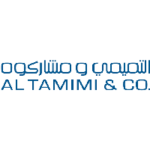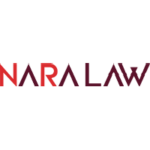-
Is the system of law in your jurisdiction based on civil law, common law or something else?
Argentina adopts the civil law system. The first Civil Code was enacted and entered into force in January 1871. This Civil Code, after several amendments over the years, was replaced in August 2015 by a new code that unified the Civil and Commercial codes (hereinafter, the “Civil and Commercial Code”).
-
What are the different types of vehicle / legal forms through which people carry on business in your jurisdiction?
Law No. 19,550 (as amended and restated, the “Argentine Companies Law”) regulates the different types of investment vehicles, among which the most commonly used are:
- Corporations (“Sociedades Anónima”)
- Limited Liability Companies (“Sociedades de Responsabilidad Limitada”)
- Branches (“Sucursales”)
Law No. 27,349 has introduced a different company type, the Simplified Stock Corporation (“Sociedad por Acciones Simplificada”).
-
Can non-domestic entities carry on business directly in your jurisdiction, i.e., without having to incorporate or register an entity?
Pursuant to Argentine Companies Law chapter XV, foreign entities can perform isolated acts or appear in trial without having to register before any local authority.
Section 118 of Argentine Companies Law states that foreign entities wishing to carry on regular business in Argentina must set up a branch (Succursal) or a subsidiary, to that extent they must: a) prove their existence and validity pursuant to their laws of incorporation; b) constitute a corporate domicile in Argentina; c) register with Argentina Public Registry (local registries resolutions require to incorporate the foreign company in the register where they have the most economic activity); d) explain the decision to incorporate the branch and appoint a legal representative.
Also, companies incorporated abroad may be registered with the Public Registry under section 123 of the Argentine Companies Law since they act as shareholder of a local company. Foreign companies whose corporate purpose is principally developed in Argentina shall be redomiciled to Argentina where the majority of the company´s value is located in Argentina. These companies will be considered as local companies and must be converted to a local entity type pursuant to section 124 of the Argentine Companies law No. 19,550.
-
Are there are any capital requirements to consider when establishing different entity types?
Regarding capital requirements, the Argentine Companies Law establishes the following:
- Corporation: The minimum capital required is AR$ 30,000,000 and is represented by shares.
- Limited Liability Company: There is no minimum capital required for this type of entity, but it should be adequate for developing the company’s purpose.
- Branches: It is not mandatory to allocate capital to the Argentine branch of a foreign company, but its capital will have to be adequate for the corporate purpose, activity and volume of the entity.
-
How are the different types of vehicle established in your jurisdiction? And which is the most common entity / branch for investors to utilise?
Establishing a subsidiary involves creating/incorporating an entity under one of the corporate types provided for in the General Companies Law No. 19,550.
This requires prior registration of the investor (i.e. the foreign entity) with the Public Registry in order to become a shareholder or partner of an Argentine entity, whether by purchasing shares/quotas or by creating a new company in Argentina. This prior registration is not required for foreign individuals. In either case, the investor must register with ARCA (Federal Tax Authority) to obtain a CDI (Identification Code), which is for identification purposes only.
Unlike a branch, forming a subsidiary limits the liability of shareholders/partners to the capital contributed to the entity.
The most commonly used corporate types are corporations and limited liability companies. Only Sociedades Anónimas can be single-member companies (S.A.U.).
The main characteristics of these type of entities, according to the Argentine Companies Law, are the following:
Corporations (Sociedad Anónima, or “S.A.”)
- Capital is divided into shares of stock. Shares must be registered and non-endorsable. According to the rights they grant, shares may be classified into common or preferred shares.
- Transfer of shares is generally unrestricted, but certain restrictions may be included in the corporation’s bylaws.
- They may have one shareholder (single shareholder corporation or “Sociedad Anónima Unipersonal – SAU”) or more than one shareholder (multiple-member corporation).
- Shareholders’ liability is limited to their capital contributions.
- Shareholders must hold at least one regular meeting every year for the main purpose of approving financial statements, considering the results of the fiscal year, the performance, compensation of the members of the board and statutory auditors, and appointing directors and statutory auditors, if applicable.
- The members of the board of directors (BOD) are appointed by the shareholders. One or more individuals (depending on the provisions of the bylaws) may compose the board and the term cannot exceed three fiscal years. Majority of the members of the board must be domiciled in Argentina.
Limited Liability Company (Sociedad de Responsabilidad Limitada or “SRL”)
- Members limit their liability to the par value of their membership interests (quotas). Quota transfers shall be registered with the Public Registry
- The number of quota holders shall be at least two and shall not exceed 50 individuals/entities.
- No minimum capital is required. However, the Public Registry requires that the capital subscribed must be adequate to fulfill the company’s corporate purpose.
- The SRL is managed by one or more managers appointed for a fixed term or indefinitely.
To incorporate a Subsidiary in Argentina, it will be necessary to define and sign the bylaws, which must include: (i) identification of the shareholders or partners; (ii) corporate name and jurisdiction or location where the registered office will be located; (iii) corporate purpose or objective; (iv) capital, identifying the contributions of each partner/shareholder; (v) terms; (vi) provisions governing management/board meetings, partners/shareholders meetings (assemblies), and how the statutory auditor committee will work, if applicable; (vii) provisions regarding profits and losses; (viii) rights and obligations of partners/shareholders; and (ix) provisions regarding the company’s performance, dissolution, or liquidation. Depending on the type of entity selected, bylaws must be signed in a public document (S.A. or S.A.U.) or in a private document signed before a notary public (S.R.L.).
The capital subscribed or committed by each partner/shareholder must be deposited as follows: in the case of a Single-Member Corporation (S.A.U.), it must be subscribed and paid upon incorporation. The rest of the entities may contribute the entire subscribed capital, at the discretion of each shareholder/partner, as follows: 100% at incorporation or may deposit at least 25% of the committed capital upon incorporation, with the remainder to be paid within two years of the incorporation date. These amounts must be deposited in the Banco de la Nación Argentina with the corresponding deposit receipt or with the authorization of a notary public.
A notice must be published in the Official Gazette of the Argentine Republic with the following information: (i) identification of the shareholders or partners; (ii) date of the bylaws; (iii) company name; (iv) address; (v) purpose/object; (vi) terms; (vii) capital; (viii) managers/directors and auditors, if applicable; (ix) legal representative or president and (x) date of the closing of the fiscal year. In order to publish the notice, if it is the legal representative who does so, he/she must send a notification to the Official Gazette.
The application for registration with the IGJ and the corresponding provincial company registry must be completed: (i) a duly stamped form; (ii) a prequalification report; (iii) bylaws and registered office; (iv) a notice signed by the managers/directors and trustee(s) accepting their appointment, as well as a guarantee in favor of the regular managers/directors; (v) notices published in the Official Gazette; proof of capital deposit; affidavit of politically exposed person status by managers/directors or auditors; and (viii) payment of the registration fee.
-
How is the entity operated and managed, i.e., directors, officers or others? And how do they make decisions?
Corporations
A corporation is managed by a board of directors. Directors can only be individuals appointed by the shareholders. There is no restriction on shareholders also being directors.
Directors are appointed for a fixed term not exceeding three fiscal years. In case of a board of directors, they must appoint a chairman and a vice-chairman in their first meeting to replace the chairman in case of absence or impediment. The chairman is the legal representative of the company. The terms and conditions for the board of directors to meet must be outlined in the bylaws. The quorum to function must be of more than the half.
Limited Liability Company
The SRL is managed by one or more managers. Managers can only be individuals appointed by the quotaholders. There is no restriction on quotaholders also being managers.
Managers may be appointed for a fixed term or indefinitely. If there is more than one member of management, the bylaws may establish the functions that each manager is responsible for. In the case of silence, it is understood that all managers are legal representatives and can act on behalf of the company.
Branches
A branch is represented and managed by a legal representative appointed to act on behalf of the branch by the entity’s headquarters. His/her appointment can be indefinite.
-
Are there general requirements or restrictions relating to the appointment of (a) authorised representatives / directors or (b) shareholders, such as a requirement for a certain number, or local residency or nationality?
Argentine or foreign nationals can be appointed directors or managers. However, the absolute majority of its members must be Argentine residents.
There is no specific number of individuals to integrate into the BOD or management, and its number will depend on the provisions of the bylaws.
All appointed managers, directors and legal representatives, in the case of a branch, will have to be registered with ARCA (ie the federal tax authority).
-
Apart from the creation of an entity or establishment, what other possibilities are there for expanding business operations in your jurisdiction? Can one work with trade /commercial agents, resellers and are there any specific rules to be observed?
Investment in Argentina is mainly done through:
(A) Creation of a local company:
- through the creation of a subsidiary
- or setting up a branch
(B) Acquisition of a stake in an already established Argentine company
(C) Acquisition of an ongoing concern
Commercial agents and resellers are not forbidden and is a commonly used type of business either through distribution contracts, agency agreements, or franchises. Depending on the characteristics and the way such relationship is structured it may have one or other tax treatment. That will determine the convenience to eventually set up a subsidiary or not.
Other type of customary agreements: the Argentine Civil and Commercial Code foresees some specific type of agreements to develop businesses. The most relevant types are the following:
Uniones Transitorias or UT:
The purpose of this temporary business association is to develop or execute specific works, services or supplies, within or outside Argentina. They can also develop or carry out activities or services that are supplementary and accessory to the main purpose. A foreign company may be a member of a local UT as long as it is locally registered as a branch. The UT agreement and appointment of representative must be registered with the Public Registry.
Cooperating groups (Agrupaciones de colaboración):
The purpose of these groups is to create a common organization among several parties to facilitate or develop certain phases of its members’ activities, or to improve or increase the results of such activities. As with UTs, this type of contract-based business integration does not create a separate legal entity distinct from its members but must be registered with the Public Registry. Their members are jointly and severally liable for the obligations undertaken by this organization.
Consortium agreement (Consorcios de cooperación):
These are similar in nature and characteristics to cooperation groups; however, (i) the profits of the activity will be distributed among the members according to the provisions of the agreement (in case of silence, in equal parts) and (ii) their members may agree not to be jointly and severally liable for the obligations undertaken by the legal representatives of the consortium. The agreement and the appointment of the legal representative must be registered with the Public Registry.
Joint Venture:
The Argentinian National Civil and Commercial Code does not foresee a contract or specific figure for the joint venture. Notwithstanding, individuals and companies are allowed to freely execute any contract to rule their rights and obligations. Hence locally two or more companies could sign a Joint Venture agreement that rules their shareholders/quota holders rights in a newco to develop the intended project.
Trusts:
Argentinian Trusts are contracts where trustors allocate certain assets, goods, rights or credits under another party administration (trustee) in favor of a beneficiary, which can be the trustor, the trustee or a third party.
The trust principal benefit is the possibility to transfer the property of certain assets to a third party. As consequence, the trustor´s creditors cannot execute the encumbered assets as trust funds. Additionally, the trust limits its liability to the trusted funds avoiding the prosecution of the trustee’s property in the event that the trust debts exceed the value of its funds.
At the end of the trust term or compliance with its purpose the assets shall be transferred to the “Fideicomisario”, the fideicomisario can’t be the same party as the trustee.
The principal Trusts are:
- Financial Trust: the trustee is an entity registered in the Argentinian Securities Exchange Commission and the trust can publicly offer securities to third parties (whether in a private way or in the stock exchange market).
- The Financial Trust agreement must rule the terms and conditions for issuing securities. The agreement could also foresee the quorum and majorities of the beneficiary’s meetings to adopt resolutions, in absence of regulation, their meetings will adopt corporation rules.
- Real Estate Trust: this is a commonly used figure to develop real estate projects. The trustor allocates the property/land or funds under the management of the trustee who shall develop or manage the development (by third parties) or the project. Once the project is finished, the trustee will transfer the property to the beneficiaries or the trustor.
Apart from the agreements mentioned, business can be conducted by any contractual form, every time parties consider the standard of good faith and avoid any abuse of law, or acts contrary to ethics or good commercial practices.
-
Are there any corporate governance codes or equivalent for privately owned companies or groups of companies? If so, please provide a summary of the main provisions and how they apply.
Private companies do not have any corporate governance codes or equivalent. Whereas public listed companies must disclose in the board of directors’ annual report the enforcement of the corporate governance principles code issued by Argentina’s Securities and Exchange commission.
-
What are the options available when looking to provide the entity with working capital? i.e., capital injection, loans etc.
The most common options to inject funds into a company are as follows:
- Corporate capital increases either in cash or in kind.
In case of a capital increase in cash, Argentine Companies Law states that at least 25% of the funds must be paid in upon the resolution resolving the capital increase and the remaining 75% within two years from that date. For capital increases in kind, the allocated assets must be determined and foreclosable, their valuation will be ruled by the company bylaws or local public registry rules. The assignor party is liable for the existence and legitimacy of the credit. If the loan can’t be collected, the assignor will have 30 days to contribute the amount due.
- Irrevocable Capital Contributions.
This figure is not contemplated in the Argentine Companies Law but in some local regulations, e.g., General Resolution No. 15/2024 and 16/2024 issued by the Public Registry of the city of Buenos Aires.
-
What are the processes for returning proceeds from entities? i.e., dividends, returns of capital, loans etc.
In order to return proceeds from entities as dividends or returns of capital, there are specific rules provided by the Argentine Companies Law, as follows:
Dividends: The Argentine Companies Law establishes that distribution of dividends is legal only if it results from net profits arising from annual financial statements duly issued and approved by the Annual Shareholders’ Meeting. Anticipated dividends are forbidden, except for those companies under permanent government auditing. These companies require a financial statement duly issued and approved.
Voluntary Capital Reduction: Article 203 of the Argentine Companies Law establishes that the voluntary capital reduction will be decided by the Extraordinary Shareholders Meeting with a well-founded report provided by the trustee and must comply with some specific requirements, such as notices in the Official Gazette for the creditors to oppose the reduction.
In all cases, foreign exchange control restrictions may be applicable for each of the options indicated above as well as for the repayment of loans.
-
Are specific voting requirements / percentages required for specific decisions?
Generally, resolutions are adopted by a majority of votes. Quorum may vary depending on the type of meeting (ordinary/extraordinary) and whether it is held at first or second call. Nevertheless, bylaws may rule about special voting requirements and quorum.
Corporations:
Argentine Companies Law establishes special majorities for situations that are considered special cases, requiring for these cases that the decisions be adopted by a majority of shares with voting rights. E.g., transformation, extension or renewal, early dissolution of the company, transfer of domicile abroad, merger and spin-off, change of purpose and capital reduction, among others.
Limited Liability Companies:
The bylaws shall establish which is the majority applicable to the resolutions whose purpose is its amendment. The majority must represent at least more than half of the capital. In the absence of contractual regulation, the vote of three quarters of the capital is required. If a single partner represents the majority vote, the vote of another quotaholder will also be required.
-
Are shareholders authorised to issue binding instructions to the management? Are these rules the same for all entities? What are the consequences and limitations?
The BOD or managers of the company must act with loyalty and with the diligence of a good businessman, pursuing the benefit of the company as the main objective, regardless of shareholders personal pursuit. Those who fail to fulfill their obligations are unlimitedly, and jointly liable for the damages and losses resulting from their performance or omission. Notwithstanding, regular governance resolutions taken in shareholders meetings must be enforced by the directors, but not binding.
-
What are the core employment law protection rules in your country (e.g., discrimination, minimum wage, dismissal etc.)?
In Argentina, the main rules of protection in labor law appear in the National Constitution, which establishes the so-called protective principle (Article 14 bis of the National Constitution), which assumes that the worker is in a weaker position than the employer in the employment relationship. Therefore, the constitutional mandate imposes on legislators the obligation to enact laws that equalize inequalities, granting protection to the worker.
Argentina has many protective labor laws:
Cases of doubt: If a norm can be interpreted in different ways, the one that is more favorable to the worker should be preferred.
Minimum Wage: Argentina has a minimum wage which is established by a tripartite commission composed of representatives of the Government, labor unions and companies – as at March 2025, the minimum wage is ARS296,832 per month. The law prohibits the payment of wages lower than the minimum wage, and if they were agreed, it would immediately be understood that the applicable wage would be the minimum wage. In addition, collective bargaining agreements also establish wage scales, which are positioned above the minimum wage.
Impossibility of the employee to waive his rights: In attention to the so-called protective principle, the law assumes that the negotiations that the worker may carry out with the employer are disadvantageous for the former. Therefore, by law it is forbidden for the employee to validly waive his labor rights.
Primacy of reality: Argentine law protects the worker by giving precedence to the reality of the facts over the documents eventually signed between the parties. All acts performed between the employer and the employee in fraud to the labor law are considered null and void.
Indemnity for dismissal without just cause: The labor law establishes that an employer who dismisses an employee without just cause must pay him/her an indemnity equivalent to one month’s salary for each year of service of the employee, or the fraction exceeding 3 months. For the estimation of this payment, the best remuneration earned during the last 12 months of the employment relationship must be considered.
Discrimination: The labor law provides for an aggravated indemnity for cases in which the employer performs a dismissal under a discriminatory act. In such case, the employee will be entitled to have his severance indemnity increased by 50% to 100% of the indemnity amount provided for the case of dismissal without just cause (depending on the seriousness of the case, which will be decided by a labor judge).
Maternity: The labor law protects pregnant women by making it impossible for them to be dismissed 7 and a half months before delivery, and for the same period after delivery. If the employer fires the person during the protection period, he/she is obliged to pay a special indemnity of 13 salaries, which will be added to the indemnity for dismissal without just cause.
Union protection: Union representatives enjoy special protection by means of which they cannot be dismissed, they cannot be sanctioned, nor can their working conditions be changed or altered. If the employer fires the legal representative, and the latter decides to validate the dismissal, the employer must pay the dismissed worker all the remaining remunerations until the end of his mandate as union representative, plus 13 salaries, plus the indemnity for dismissal without just cause.
-
On what basis can an employee be dismissed in your country, what process must be followed and what are the associated costs? Does this differ for collective dismissals and if so, how?
Argentina does not contemplate specific causes for dismissal. The general rule is that the employer may dismiss the employee with just cause when the employee has failed to comply with his obligations in a way that constitutes an offence which, due to its seriousness, does not allow the continuation of the relationship. In cases where the employer terminates the employee with just cause, there is no severance obligation. If the cause for dismissal is not proven by the employer, the employer must pay the dismissed employee the compensation corresponding to a dismissal without just cause, which is equivalent to one monthly salary for each year of service or fraction greater than three months.
During 2024 a reform was introduced in the labor legislation, which enables the employer to dismiss any employee who, in the framework of a strike, carries out a blockade or seizure of the establishment and: threatens or intimidates employees who do not want to participate in the strike, and/or blocks access and/or prevents other employees from entering the establishment, and/or causes damage to persons or things belonging to the company.
In the case of mass layoffs, Argentine law provides for the mandatory initiation of a Preventive Crisis Procedure (PCP). A PCP must be initiated when more than 15% of the workers are affected in companies with less than 400 workers; more than 10% in companies with between 400 and 1,000 workers; and more than 5% in companies with more than 1,000 workers. When such percentages are not reached, the procedure foreseen in Decree No. 328/88 must be initiated, which establishes that employers, before ordering dismissals due to economic causes or lack or reduction of work to all or part of their personnel, must communicate such decision to the Ministry of Labor at least ten days prior to making it effective. Through the Preventive Crisis Procedure, the employer may dismiss employees with severance payments equivalent to 50% of the compensation provided for dismissal without just cause. However, in practice this alternative does not materialize, and in cases of mass dismissals that are not based on economic reasons, employers usually pay compensation higher than the compensation for dismissal without just cause.
-
Does your jurisdiction have a system of employee representation / participation (e.g., works councils, co-determined supervisory boards, trade unions etc.)? Are there entities which are exempt from the corresponding regulations?
Argentina has bodies that represent workers and employers’ associations. Trade union representation is carried out by unions or trade unions (first-level entities), which can join Federations (second-level associations), and unions and Federations can join Confederations (third-level entities). Employers’ associations negotiate with unions and their purpose is not limited to the regulation of labour relations; it is common for employers’ associations to aim to improve issues inherent to the activity and companies that comprise them.
In case there are no rules regarding the amount of union delegates in a union agreement, law establishes a minimum of workers representing their professional association:
- Between 10 and 50 workers, 1 representative
- Between 51 and 100 workers, 2 representatives
- From 101 and beyond, 1 representative every 100 workers adding the 2 representatives mentioned before.
-
Is there a system governing anti-bribery or anti-corruption or similar? Does this system extend to nondomestic constellations, i.e., have extraterritorial reach?
There are several rules governing anti-bribery and anticorruption conduct. A corporate entity can be held liable for failure to prevent bribery, among other crimes, or enabling tax evasion. Some of the most relevant legislation is briefly referenced below:
Law No. 27,401 establishes the corporate criminal liability applicable to Argentine companies related to the following crimes: a) National and international bribery and influence peddling; b) Negotiations incompatible with the exercise of public functions; c) Concussion; d) Unlawful enrichment of officials and employees; and e) Misleading financial statements and aggravated false reports. Companies will be liable for these crimes if they were directly or indirectly performed in favor of them or acting on their behalf, unless the individual would have performed only in his benefit and the act wouldn’t have profited the company. Law No. 25,246 (as amended and restated, the “AML/CTF Law”) creates the Financial Information Unit, which is the Argentine office in charge of the analysis, processing, and disclosure of information for preventing money laundering and terrorism financing. In addition, there are several rules that foresee fraudulent behavior, such as Law No. 27,430 sections about tax crimes like evasion or tax fraud. The Argentine Criminal Code also considers bribery of public officers and influence peddling as crimes against the Public Administration, both in their active and passive forms. Some of them may have extraterritorial effects.
-
What, if any, are the laws relating to economic crime? If such laws exist, is there an obligation to report economic crimes to the relevant authorities?
As mentioned, there are laws related to economic crimes, such as Law No. 27,430, about tax evasion, and the AML/CTF Law that compels some entities or individuals, such as among others: (i) financial entities, (ii) gambling companies – casinos and bingos – (iii) insurance companies, (iv) virtual asset service providers, (v) issuers, operators and providers of collection and/or payment services, (vi) non-financial credit providers, and (vii) -under certain specific circumstances: notary public, lawyers and accountants; to report to the Financial Information Unit any suspicious transactions related to money laundering and terrorist financing. Furthermore, Argentine Criminal Code establishes crimes against the economic and financial order (Sections 303 to 313).
-
How is money laundering and terrorist financing regulated in your jurisdiction?
The AML/CTF Law regulates anti-money laundering and counter terrorism financing in Argentina. The AML/CTF Law establishes a procedure to detect, prevent, and report suspicious operations that could be related to this kind of crime. The entities enforced to report these situations to the Financial Information Unit have a cautious and detailed reporting and information procedure. It is mandatory to report any suspicious transaction or situation in some cases regardless of its amount and whether it was carried out isolated or frequently.
-
Are there rules regulating compliance in the supply chain (for example comparable to the UK Modern Slavery Act, the Dutch wet kinderarbeid, the French loi de vigilance)?
The Argentine National Constitution establishes the freedom of all people and the prohibition of slavery. In addition, Argentina has signed several international human rights conventions, including: (i) the Universal Declaration of Human Rights; (ii) the American Declaration on Human Rights; (iii) the International Covenant on Civil and Political Rights; (iv) the Convention on the Rights of the Child; and (v) the International Convention on the Elimination of All Forms of Racial Discrimination. There is a legal prohibition against hiring persons under 16 years of age unless they have the express authorization of the minor’s father, mother, or caretaker. In such cases, the child may only work three hours a day or 15 a week and must attend school.
-
Please describe the requirements to prepare, audit, approve and disclose annual accounts / annual financial statements in your jurisdiction.
Section 63 and subsequent articles of the Argentine Companies Law state the requirements that financial statements must comply with and are as follows:
The information must be grouped in such a way that it is possible to distinguish total current assets from non-current assets, and current liabilities from non-current liabilities.
The rights and obligations must be shown, indicating whether they are documented, with collateral or assets, assets, and liabilities in foreign currency must be shown separately. Different items may not be offset against each other.
The income statement must be presented in such a way that it shows the profit or loss separately from the ordinary and extraordinary operations of the company, determining the net profit or loss for the year to which those derived from previous years will be added or deducted. Different items may not be offset against each other.
The statement of results must be complemented with the statement of changes. It will include the causes of the changes which occurred during the year in each of the items that make up the net worth.
Copies of the financial statements, together with related documentation, must be kept at the corporate headquarters, available to the partners or shareholders, in advance of its consideration by them. When appropriate, copies of the directors’ or administrators’ report and the trustee’s report will also be kept at their disposal. With respect to approval and filing of annual financial statements, please see our comments in the following sections 22 and 23.
-
Please detail any corporate / company secretarial annual compliance requirements?
According to Argentine Companies Law, the annual compliance requirements consist of:
Approval of annual financial statements.
Filing of financial statements with the Public Registry, if applicable depending on the type of entity. Limited liability companies are not required to file financial statements with the Public Registry unless they have a corporate capital over AR$2,000,000,000 (approximately USD$1,841,620 at the current official exchange rate AR$1,086 per USD$ -as of March 7th, 2025).
Appointment of authorities, in those cases in which the bylaws fix their term of office to only one year or fiscal year.
Payment of annual fee depending on the Public Registry.
Each provincial jurisdiction within Argentina (apart from the City of Buenos Aires that has its own public registry, the Public Registry) has the power to issue their own regulation regarding registry requirements. Therefore, there may be additional actions to be complied with, depending on the Argentine Province in which the company is incorporated.
-
Is there a requirement for annual meetings of shareholders, or other stakeholders, to be held? If so, what matters need to be considered and approved at the annual shareholder meeting?
At least 10 days prior to the AGM, the Company must publish notices in the official bulletin for 5 days to call for shareholders to attend the AGM. Should the company be covered by section 299 of the Argentine Companies Act, notices of the meeting must also be published in a local high-circulating newspaper. This requirement may be waived if unanimous confirmation to the assembly is obtained.
This Board of Directors’ meeting must consider: (i) a document named “memoria” in which the Board Of Directors primarily reports on the state of the company in the various activities in which it has operated and includes their opinion on the projection of the operations and other aspects that are considered necessary to illustrate the current and future situation of the company, (ii) the annual financial statements, and (iii) the convening of the AGM. The AGM must consider, at least, the following:
(i) the document named “memoria”, (ii) the annual financial statements, (iii) the result of the fiscal year, (iv) the performance of the board of directors, (v) the board of directors’ fees, and (vi) the designation of the new board of directors, if applicable.
-
Are there any reporting / notification / disclosure requirements on beneficial ownership / ultimate beneficial owners (UBO) of entities? If yes, please briefly describe these requirements.
This requirement is not stated in the Argentine Companies Law but in the regulations issued by the Public Registry of each jurisdiction. For instance, in the case of Public Registry of the city of Buenos Aires, regulations state as follows: In the registration procedures carried out by any company, an annual affidavit indicating the UBO must be filed for each individual that meets the characteristics established by the Financial Information Unit Resolution No. 112/21. The UBO shall be understood as any human person who directly or indirectly owns at least 10% of the equity or voting rights of the company, or any individual that by other means has its final control (the Financial Information Unit Resolution defines final control as having the faculty to approve management decisions or appoint/remove the company authorities).
Whenever the company states that it does not have a UBO, they must disclose the personal data of the individual that carries on the management, direction or represents the company.
The UBO affidavit must be be filed with UBO´s personal information and signed in wet signature by this person. It is important to note that the Public Registry does not make this information available to the public. In case the majority share of the company is held by a company that makes a public offering of its negotiable securities, listed in an authorized local or international market, and is subject to requirements on transparency and/or disclosure of information, such circumstances must be indicated for the purpose of being able to be exempt from this requirement.
-
What main taxes are businesses subject to in your jurisdiction, and on what are they levied (usually profits), and at what rate?
Income tax applicable to companies is one of the main taxes. Through Law No. 27,630 (Official Gazette 06/16/2021), the income tax rate for companies was modified with effect for fiscal years beginning on or after 1 January 2021, inclusive. Progressive Corporate Income tax rates apply depending on the volume of income (25%/30%/35%).
Rates Taxable income Tax due on lower limit Marginal rate on excess Corporate income tax rate ARS 0 million–ARS 7.604.948,57 ARS 0 25% ARS 7.604.948,57–ARS 76.049.485,68 ARS 1.901.237,14 30% More than ARS 76.049.485,68 ARS 22.434.598,28 35% Branch tax rate Progressive corporate income tax rate as above (25%/30%/35%), plus 7% tax on after-tax profits remitted to a foreign head office Capital gains tax rate Progressive corporate income tax rate as above (25%/30%/35%) Surtax: There is no surtax.
Alternative minimum tax: There is no alternative minimum tax.
Taxation of dividends: Dividends received by an Argentine company from another Argentine company are exempt from corporate income tax. Dividends received from a foreign company are subject to corporate income tax, with a credit granted for the underlying corporate tax paid on the profits out of which the dividends are paid, as well as a credit for any withholding tax suffered on the dividends.
Capital gains: Capital gains generally are included in taxable income and are subject to corporate income tax at progressive rates.
Gains derived from the sale of shares by an Argentine entity are subject to income tax.
Gains derived by a nonresident on the sale of publicly traded shares or certificates of deposit for such securities (i.e., ADRs) are exempt. Tax at 15% on the net gain, or 13.5% on the sales price (at the option of the seller), applies to the transfer of shares in Argentine companies, other participations in Argentine entities that are not publicly traded, and other Argentine assets such as real estate property. Under certain conditions, indirect transfers of shares and other participations in Argentine entities may be subject to the same rules.
Foreign tax relief: A tax credit may be claimed for foreign tax paid, up to the amount of the Argentine tax liability related to the foreign-source income. The credit is granted on an overall rather than a per-country basis. The tax credit also is available for foreign tax paid on Argentine-source income under special provisions in certain double tax treaties. Withholding taxes incurred are creditable, as are underlying direct and indirect income taxes paid (under certain conditions). Unrelieved foreign tax credits may be carried forward for five years.
Participation exemption: There is no participation exemption regime.
Value added tax
Rates Standard rate 21% Increased rate 27% Reduced rate 0%/10.5% Taxable transactions: VAT is levied on all supplies of goods or services within Argentina, unless specifically exempt, and on the import of personal property and services rendered abroad, but economically used in Argentina. The provision of digital content (e.g., music, videos, etc.) by nonresidents is subject to Argentine VAT at the standard rate.
A taxable person is required to issue a VAT sales invoice for all taxable supplies made; the VAT invoice is needed if the taxpayer wishes to claim an input tax deduction. Electronic invoicing is mandatory and there are no provisions for VAT grouping.
Sales taxes are levied at the provincial level (see under “Other taxes on corporations and individuals,” below).
Rates: There are four VAT rates in Argentina (i) the standard rate of 21%, (ii) an increased rate of 27% that applies to some services, such as the supply of certain communications services, power, natural gas, and water, (iii) a reduced rate of 10.5% that applies to capital goods and other items, and (iv) a zero rate, applicable to exports. For zero-rated supplies, VAT is not levied on the output, but VAT paid on inputs may be reclaimed. Further, certain supplies of services are exempt from VAT (including education and international transport).
Tax treaties: Argentina has a relatively small tax treaty network but has concluded exchange of information agreements with nontreaty countries as part of the OECD BEPS project. Argentina signed the OECD multilateral instrument (MLI) on 7 June 2017. For information on Argentina’s tax treaty network, visit Deloitte International Tax Source.
Social Security Contributions: for employers in Argentina, the main taxes are the contributions to the Argentine Integrated Pension System, which includes:
- Retirement and pension
- Health insurance
- Family allowances
- Unemployment insurance
- Labor Risk Insurance
For that, employers should withhold employees’ contributions and pay employers contributions. Employees’ contributions have a 17% rate from their remunerative salary. Employers’ contributions rate depends on their status, if they have a Small or medium-sized company status they will contribute at a 24% rate, in the case they do not have that status they will contribute at a 26,4% rate.
Also, union contributions of 1% to 2,5% can be withhold from employee’s payslip.
-
Are there any particular incentive regimes that make your jurisdiction attractive to businesses from a tax perspective (e.g. tax holidays, incentive regimes, employee schemes, or other?)
On 8 July 2024, Law No. 27.742 (“Bases and Starting Points for the Freedom of Argentine People,” known as the “Bases Law”) was published in the official gazette and is effective as from the date of publication. The Bases Law includes a significant initiative known as the “Incentive Regime for Large Investments” (RIGI, per its acronym in Spanish) which offers substantial tax and other incentives to qualifying large-scale investments of at least USD 200 million in strategic sectors critical to Argentina’s development made by investors operating as a single project entity (VPU, per its acronym in Spanish). Incentives include a 25% corporate income tax rate and a 30-year stability regime for taxes, customs, and foreign exchange. This article provides an overview of the available incentives, the eligibility criteria, and the requirements that must be satisfied by the investment plan.
Key benefits
The RIGI offers a range of direct and indirect tax incentives, together with foreign exchange and other benefits, including the following:
Corporate income tax
- Reduced corporate income tax rate of 25% compared to the top progressive corporate income tax rate of 35% for high profit companies.
- Option for accelerated depreciation methods for tangible assets.
- Indefinite carryforward of net operating losses (NOLs), with the possibility of transfer to third parties after five years. For dedicated branches, NOLs can be used to offset the taxable profits of the head office. NOLs will be subject to an inflation adjustment based on the Index of Internal Wholesale Prices (IPIM) published by INDEC (the National Institute of Statistics and Census of Argentina).
- Favorable tax treatment for distributed profits, with reduced rates for dividends paid from profits earned at least seven previously (a reduction from the 7% standard rate to 3.5%).
- Interest and foreign exchange deductibility limitation rules do not apply to VPUs for the first five years in which they are subject to the RIGI regime.
- Streamlined transfer pricing requirements for transactions with the VPU.
- Reduced withholding tax burden on specific payments made by “long-term strategic export projects” (LTSEPs) to foreign beneficiaries reducing the deemed gain to 30%, resulting in a withholding of 10.5% on gross revenue and without grossing-up to be applied.
- Tax-free company reorganizations to form VPUs without formal requirements.
- Full tax credit for tax paid on bank debits and credits.
Value added tax (VAT)
- VPUs can settle VAT on the purchase, construction, manufacture, and import of fixed assets, or on essential infrastructure and service investments for project development, using tradable tax credit certificates. This allows VPUs to pay only the net amount invoiced by the supplier (excluding VAT).
- Excess VAT credit certificates can be transferred freely by suppliers.
Customs duties
- VPUs are guaranteed unrestricted import and export of goods and services, free from government-imposed quotas, restrictions, or measures affecting traded item values.
- LTSEP goods are exempt from export restrictions based on domestic market needs.
- Capital goods, spare parts, and components imported by VPUs are exempt from import duties, statistics fees, and any other national or provincial tax withholdings.
- Exports are exempt from export taxes after three years from the date of project approval (two years for LTSEPs).
Foreign exchange
- Current regulations require exporters to convert most of their export earnings in foreign currency via Argentina’s foreign exchange market.
- The RIGI offers an exception, allowing VPUs to retain a gradually increasing portion of their export proceeds in their original currency:
- 20% for year two (year one for LTSEPs);
- 40% for year three (year two for LTSEPs); and
- 100% for year four and subsequent years (year three for LTSEPs).
- Existing and future foreign exchange regulations imposing restrictions or prior authorization for accessing the market do not apply to VPUs for:
- Principal repayments on foreign loans or debts; and
- Profit, dividend, or interest payments to nonresident beneficiaries originating from foreign capital contributions, direct investments, or loans entered into and settled in the official exchange market after joining the RIGI.
Stability
- VPUs benefit from a 30-year stability regime for taxes, customs, and foreign exchange.
- VPUs are subject to the direct taxes in effect on the date their investment project is approved. No new or increased direct taxes will be applied to them after that date. This includes:
- Tax rate increases;
- Elimination of exemptions;
- Changes to taxable base calculation methods; and
- Introduction of new taxable events.
- For payments to foreign beneficiaries, stability only applies to modifications to the percentages or mechanisms used to determine presumed net income from Argentina.
- The foreign exchange framework cannot be modified by regulations introducing stricter conditions.
- VPUs subject to the RIGI will start to benefit from the incentives and stability provisions as from the “adhesion date” (the date on which their application for admission to the regime is submitted, provided the application is accepted).
- For LTSEPs, the stability period may be extended to 30 years as from the estimated launch date of the respective stage of the project (but not beyond 30 years as from the 10th anniversary of the launch of the first stage).
Dispute resolution
- Any disputes arising regarding the RIGI between a VPU and the Argentine government that cannot be resolved by amicable negotiation are to be settled through international arbitration at the investor’s choice by either the Permanent Court of Arbitration, International Chamber of Commerce Rules, or the International Centre for Settlement of Investment Disputes. The seat of arbitration cannot be in Argentina.
- The arbitration tribunal must be composed of three arbitrators who must not be Argentine nationals or nationals of the state of the investor.
- The rights under the RIGI will be considered protected investments in accordance with the meaning of the relevant bilateral investment agreement.
Other benefits
- VPU’s rights are protected from nationalization, confiscation, or expropriation under the agreements to foster and protect investments signed by Argentina.
- VPUs may maintain their accounting records in USD using International Financial Reporting Standards.
Outside RIGI and in general terms, regular benefits for employers in place are:
- Reduction in employers’ contributions depending on the activity and region.
- Small and medium-sized businesses can access benefits by reducing employer contributions to social security.
- Promotion of Employment, which grants benefits to employers who hire young people.
- Bonuses for training in employers’ contributions. Tax credit, employers can deduct up to 50% of training expenses from Income Tax.
- Exemption in social security for hiring disabled people.
- Reduction in employer’s contributions up to 70% for software, biotechnology, 4.0 industry, nanotechnology companies.
- Total exemption on social security contributions for manufacturing and technology companies.
- Industrial parks can lead to tariff subsidies, tax exemptions and reduction in labor costs.
-
Are there any impediments / tax charges that typically apply to the inflow or outflow of capital to and from your jurisdiction (e.g., withholding taxes, exchange controls, capital controls, etc.)?
Withholding tax
Rates Type of payment Residents Nonresidents Company Individual Company Individual Dividends 0% 7% 7% 7% Interest 0% Varies 15.05%/35% 15.05%/35% Royalties Varies Varies 17.5%/28%/31.5% (35% rate applied to 50%, 80%, or 90% of gross payment, depending on type of royalty) 12.25%/17.5%/28%/31.5% (35% rate applied to 35%, 50%, 80%, or 90% of gross payment, depending on type of royalty) Fees for technical services Varies Varies 21%/28%/31.5% (35% rate applied to 60%, 80%, or 90% of gross payment, depending on type of services) 21%/28%/31.5% (35% rate applied to 60%, 80%, or 90% of gross payment, depending on type of services) Dividends: No withholding tax is payable on dividends paid by an Argentine company to another Argentine resident company. A 7% withholding tax applies on dividends paid by an Argentine company to resident individuals and nonresidents, or remittances by an Argentine branch of a foreign entity to its head office.
The “equalization tax,” a 35% withholding tax on dividend distributions exceeding accumulated taxable earnings, after certain adjustments, applies to dividend distributions made out of profits earned in fiscal years in progress as of 1 January 2018 or previous years that exceed accumulated taxable earnings.
Interest: Interest paid to resident companies and individuals exceeding a specified monthly threshold is subject to withholding tax at the local level at various rates depending on the payee but the tax withheld is creditable against the corporate or individual income tax payable on the income.
The general withholding tax rate on interest paid to a nonresident is 35%, which is reduced to 15.05% where:
- The borrower is a financial institution;
- The lender is a bank or financial institution located in a jurisdiction other than a low- or no-tax jurisdiction;
- The interest relates to certain bonds registered in countries that have concluded an investment protection agreement with Argentina; or
- The transaction involves the financing by a seller of depreciable movable property.
Royalties: Royalties paid to resident companies and individuals exceeding a specified monthly threshold are subject to withholding tax at the local level at various rates depending on the payee (subject to certain exemptions) but the tax withheld is creditable against the corporate or individual income tax payable on the income.
Royalty payments made to a nonresident individual for the exploitation of copyrights in Argentina are subject to a final withholding tax of 35% on 35% of the gross payment, resulting in an effective rate of 12.25%, provided the works are registered with the National Copyright Bureau and certain other conditions are satisfied. Film and television royalties, as well as royalties relating to other methods that include the reproduction or transmission of images or sounds paid to a nonresident are subject to a final withholding tax of 35% on 50% of the gross payment, resulting in an effective rate of 17.5%. Patent royalties paid to a nonresident are subject to a final withholding tax of 35% on 80% of the gross payment (effective rate of 28%) if the agreement under which the royalties are paid is registered by the National Institute of Industrial Property (INPI). If these conditions are not satisfied, the effective rate is 31.5% (35% x 90%).
Fees for technical services: Fees for technical services paid to resident companies and individuals are subject to withholding tax at the local level at various rates but the tax withheld is creditable against the corporate or individual income tax payable on the income.
Fees for technical assistance, or engineering or consulting services paid to a nonresident are subject to a final withholding tax of 35% on 60% of the gross payment (giving rise to an effective rate of 21%) if the agreement under which the fees are paid is registered with the INPI and the services cannot be obtained in Argentina. If the agreement is registered with the INPI, but the services can be obtained in Argentina, the effective rate is 28% (35% x 80%). If an agreement does not fall within the scope of the transfer of technology law or does not comply with the law, the effective rate is 31.5% (35% x 90%).
Branch remittance tax: There is no additional branch profits tax. After-tax profits remitted by a branch to a foreign head office are subject to the same regime as dividends and liable to withholding tax at 7%.
Foreign exchange control: Argentina operates a complex foreign exchange control regime. The following currency controls apply to companies and individuals:
- Proceeds from the export of goods and services must be converted into ARS in the foreign exchange market within the deadlines specified by the central bank (BCRA);
- Funds may be transferred abroad to settle liabilities in accordance with BCRA regulations that also require the provision of certain information on external assets and liabilities. Additional requirements may apply depending on the nature of the liability to be settled;
- Amounts borrowed must be deposited in an onshore bank account and converted into ARS where the borrower wishes to make repayments of principal and interest in ARS; and
- Access to the foreign exchange market for persons who have sold securities with settlement in foreign currency or transferred such securities to depository entities abroad or in other different ways has bought foreign currency or similar assets by means different than the Official FX market is restricted for 90 days after the date of the transaction.
Prior authorization from the BCRA is required to access the foreign exchange market by Argentine companies that hold foreign liquid assets exceeding the equivalent of USD 100,000, or that wish to:
- Buy foreign currency in the foreign exchange market to retain funds in local USD-denominated bank accounts and/or to transfer funds to an offshore bank account held in the company’s own name;
- Pay dividends to foreign shareholders;
- Pay a foreign related party for services provided;
- Pay for imported goods where certain requirements and/or exemptions are not met;
- Settle foreign liabilities in foreign currency before their due date; or
- Make a repayment of principal on a foreign currency loan from a foreign related party.
However, approval is rarely obtained in practice as the legislation does not specify any criteria or deadlines for the application and BCRA approval process.
Sanctions for failure to comply with the foreign exchange regulations are specified in the Criminal Foreign Exchange Regime and range from fines of up to 10 times the value of the transaction that infringes the regulation to imprisonment of the company representatives and directors in the most serious cases, or in the event of repeated infringements.
-
Are there any significant transfer taxes, stamp duties, etc. to be taken into consideration?
Transfer tax: Argentina does not impose a transfer tax.
Stamp duty: The provincial authorities levy stamp duty on the formal execution of public and private instruments. Documents subject to stamp duty include contracts, notarized deeds, invoices confirmed by a debtor, promissory notes, and negotiable instruments. The rate varies between provinces, but generally is 1%. The rate can range between 2.5% and 4% for real estate sales, and there are certain other exceptions.
Stamp tax may be paid by means of fiscal stamps, a stamping meter, or on the tax return. The general stamp tax rate in Buenos Aires City is 1%. The rate is higher for the transfer of title to real property in certain cases.
Net wealth/worth tax: The federal government levies a worth tax (or personal asset tax) on the worldwide property and assets owned by individuals who are tax resident in Argentina at the end of the calendar year. The tax is based on a progressive scale from 0.5% to 1.75% on personal assets valued over ARS 6 million. Assets located outside of Argentina are subject to higher rates that vary from 0.7% to 2.25%. These rates can be reduced to the rates applicable to local assets, provided financial assets of a minimum of 5% of the total assets are brought into the country and deposited in local financial institutions by 1 April of the following financial year.
Equity interests in Argentine companies also are subject to the tax at 0.5%, which, in the case of individual shareholders, often is paid by the company under the subrogate regime (although the company has the right to request reimbursement from the shareholder, see “Other taxes on companies” under “Other,” below).
The tax also applies to the Argentine assets of nonresident individuals at 0.5%.
Inheritance/estate tax: Individuals are not subject to inheritance tax at the national level, although inheritance tax is levied by the province of Buenos Aires.
Financial transactions tax
A tax on financial transactions is levied on both companies and individuals on debits and credits to current accounts, and on cash movements or payments, at a rate of 0.6% per transaction; 33% of the tax is creditable against income tax payable. There are some exemptions.
Payroll tax: Argentina does not impose a payroll tax.
Capital duty: Argentina does not impose capital duty.
Real property tax: The provincial authorities levy real property tax annually. The tax base for the tax generally is the fiscal value of the property determined by the applicable authority. Local municipalities may grant certain exemptions to individuals. In addition, individuals are exempt from the land tax on residential land, subject to certain limits and conditions.
Other internal taxes
Internal taxes apply on the consumption of certain products including tobacco; alcoholic and nonalcoholic beverages, syrups, extracts, and concentrates; insurance; cellular and satellite telephone services; luxury goods; and motor vehicles, recreational or sports boats, and aircraft. The rate varies according to the product and the tax applies only at one stage in the supply chain for the products within Argentina. As from 1 January 2021 through 31 December 2025, a 17% tax applies to certain electronic products (6.55% on products manufactured by companies benefitting from the Tierra del Fuego province incentive).
Other taxes on companies
Companies also are subject to the following taxes:
- An annual net wealth tax applies at a rate of 0.5% on the net equity where the shareholder is a nonresident or a resident individual. The company has the right to request reimbursement from the shareholder (see “Net wealth/worth tax,” above);
- All of Argentina’s provinces and the City of Buenos Aires levy turnover tax on the gross turnover of any enterprise engaged in a commercial, industrial, agricultural, financial, or professional activity. Tax rates vary depending on the activity but they generally range from 1% to 5%. Higher rates may be imposed on certain services in some provinces; industrial activities usually are exempt or subject to lower rates; and
- Municipalities impose assessments for services they provide; in certain cases, these are calculated by applying the same taxable base as for sales tax purposes.
-
Are there any public takeover rules?
Law No. 26,831 rules the voluntary and mandatory public takeover procedures. A mandatory public takeover bid procedure shall be enacted when an individual or entity acting individually or with others would have acquired control of a listed company. While voluntary takeover procedures could be triggered anytime and it is ruled by most of the mandatory sections, but for the price, that must be determined by the bidding party.
The mentioned law defines control as: i) directly or indirectly holding more than 50% of the company equity; ii) holding less than 50% of equity but performing as controller.
Upon non-complying with the mandatory public takeover bid and after being noticed by the National Security Exchange Commission, this entity could auction the party shares and may also decide to cease their voting rights.
-
Is there a merger control regime and is it mandatory / how does it broadly work?
The Argentine Antitrust Law No. 27,442 (“AAC Law”) provides for a merger control regime establishing a special regime for the so-called economic concentrations. The Authority exercises control of economic concentration operations, by which the companies that take part in mergers and acquisitions – when the volume of business overpass certain thresholds – they must request the authorization of the National Antitrust Authority and this entity may, authorize, deny or subject the authorization to the compliance with certain conditions.
-
Is there an obligation to negotiate in good faith?
The obligation to negotiate in good faith derives from the standard of good faith that governs our legal system (Civil and Commercial Code, Section 9).
-
What protections do employees benefit from when their employer is being acquired, for example, are there employee and / or employee representatives’ information and consultation or co-determination obligations, and what process must be followed? Do these obligations differ depending on whether an asset or share deal is undertaken?
Current legislation does not contain an obligation for employers to inform individual workers and/or the union representing the employees of the sale of shares, sale of assets and/or transfer of goodwill. Consequently, there are no processes to be complied with. Notwithstanding the foregoing, some unions require the acquirer of the shares or new owner of the company to pay the legal severance to the employees as if they had been terminated without just cause, and then to discharge the employees who continue to perform their duties.
-
Please detail any foreign direct investment restrictions, controls or requirements? For example, please detail any limitations, notifications and / or approvals required for corporate acquisitions.
As a general rule, foreign investors are subject to the same laws and regulations that apply to local investors. Our National Constitution, as a general principle, set forth that foreigners have the same status and the same rights that the law grants to local investors. In this sense, freedom to set up a business by foreign investors in Argentina is the prevailing principle.
Foreign investments in Argentina are regulated by a framework of international treaties and Argentine laws and regulations. Law No. 21,382, as amended, established a legal regime to promote foreign investments in the country, based on the principle of nondiscrimination between Argentine and foreign investors. This law provides, among other things, that foreign investors may make investments in the country intended to promote economic activities or the improvement or expansion of those already existing, under the same conditions applicable to national investors, and subject to the same rights and obligations that the Constitution and laws grant and impose on national investors in accordance with its terms and any other law that may govern special or promotion regimes. With the promulgation of decree No. 70/23, law No. 26,737 on rural lands protection regime (Régimen de Protección al Dominio Nacional sobre la Propiedad, Posesión o Tenencia de las Tierras Rurales that established a regime limiting foreign ownership of rural lands throughout Argentina) was revoked. Nevertheless, there are still some restrictions related to specific economic sectors/activities, for instance, the participation in media companies/broadcasting (Law No. 25,750) that sets forth limits to the participation of foreign investors in certain media companies (Investment in media companies by foreign investors is limited to 30% -however exceptions due to bilateral treaties apply as in the case with the United States due to the Investment Promotion and Protection Treaty with Argentina).
-
Does your jurisdiction have any exchange control requirements?
Foreign exchange (FX) controls were reinstated in Argentina in September 2019. The FX controls regulate, among other things, the acquisition of foreign currency/assets, the inflow and outflow of funds into and from Argentina and place obligations on exporters of goods and services to repatriate and sell the proceeds of their export transactions in the official foreign exchange market (“Mercado Libre de Cambios“ or “MLC” as per its acronym in Spanish). Furthermore, FX transactions must be made through an institution or foreign exchange house licensed to carry out transactions in the MLC complying with all the requirements and regulations set forth by the Argentine Central Bank (the “FX Control Regime”). In general terms, the Argentine central bank requires the submission of supporting information and/or documentation evidencing the authenticity of the type of transaction to be carried out in the MLC. Failing to comply with the FX Control Regime is subject to the FX Criminal Regime since a violation of any of the foreign exchange restrictions is considered a criminal offense.
The FX Criminal Regime establishes fines and even imprisonment in case recidivism. In the case a legal person, directors, legal representatives, managers, and members of its supervisory committee are found to participate in a transaction violating the FX Control Regime, they will be held jointly and severally liable with the legal person.
-
What are the most common ways to wind up / liquidate / dissolve an entity in your jurisdiction? Please provide a brief explanation of the process.
Dissolution of an entity in Argentina requires the agreement of its partners/shareholders to be voluntary (by decision of the shareholders) or can occur due to specific situations (points 1 to 8) below) foreseen in Law 19.550 that regulates all types of commercial entities.
Causes that trigger mandatory dissolution:
1) by expiration of the term for which it was established.
2) by fulfillment of the condition to which its existence was subject.
3) by achievement of the purpose for which it was created, or by the subsequent impossibility of achieving it;
4) by the loss of the share capital;
5) by declaration of bankruptcy;
6) by merger, when absorbed;
7) by a final resolution applying a sanction canceling the public offering or the listing of its shares;
8) by a final resolution withdrawing the authorization to operate if special laws require it due to the purpose.
The grounds for dissolution may be removed by a decision of the board of directors/managers when the underlying cause gets eliminated, if the company’s activity is economically and socially possible. The resolution by the board of directors/managers must be adopted before cancelling the entity´s registration.
Assuming the entity does not fall into any of those situations, dissolution will be voluntary and not mandatory.
In case of voluntary liquidation:
The liquidator or liquidators will be appointed by majority vote within thirty (30) days of the company entering a state of liquidation. The appointment of the liquidator must be registered in the Public Registry of Commerce. Liquidators may be removed by the same majority required to appoint them. Any partner/shareholder or the statutory auditor may request judicial removal. The liquidators are the legal representatives of the company. They are empowered to perform all necessary actions to realize the assets and settle the liabilities. Nevertheless, they are subject to the instructions of the partners/shareholders, issued according to the type of company, under penalty of incurring liability for damages caused by non-compliance. They will act using the company name or business name with the addition “in liquidation.” Failure to do so will make them unlimitedly and jointly liable for damages.
The liquidators are required to prepare, within thirty (30) days of assuming office, an inventory and balance sheet of the company’s assets, which they will make available to the partners/shareholders. They may, by majority vote, extend the period up to one hundred and twenty (120) days. Failure to comply with this obligation is ground for dismissal without remuneration and makes them liable for any damage to shareholders. If the liquidation is extended, annual balance sheets will have to be prepared.
When the company’s funds are insufficient to cover the debts, liquidators are obliged to demand from the partners/shareholders the contributions due in accordance with the type of company or the bylaws. If all obligations are sufficiently guaranteed, a partial distribution may be made.
Once the company’s liabilities have been cancelled, liquidators will prepare the final balance sheet and the distribution plan: they will reimburse the capital shares and, unless otherwise provided in the bylaws, the surplus will be distributed in proportion to each partner’s share of the profits.
The final balance and the distribution project signed by the liquidators will be communicated to the partners/shareholders, who may challenge them within fifteen (15) days. The approved final balance sheet and distribution plan will be added to the company’s file in the Public Commercial Registry, and the execution will proceed.
Once the liquidation is complete, the registration of the articles of incorporation/bylaws in the Public Registry of Commerce will be cancelled.
In case the board of directors/managers moved forward with realizing the assets settle the liabilities before entering the liquidation process with the Public Registry, the liquidation process petition will still need to be filed with the Public Registry to comply with the notices in the official gazette to ensure no third parties rights were damaged. Afterwards, the cancelation of the entity, once all requisites are met, will be allowed by the Public Registry.
Argentina: Doing Business In
This country-specific Q&A provides an overview of Doing Business In laws and regulations applicable in Argentina.
-
Is the system of law in your jurisdiction based on civil law, common law or something else?
-
What are the different types of vehicle / legal forms through which people carry on business in your jurisdiction?
-
Can non-domestic entities carry on business directly in your jurisdiction, i.e., without having to incorporate or register an entity?
-
Are there are any capital requirements to consider when establishing different entity types?
-
How are the different types of vehicle established in your jurisdiction? And which is the most common entity / branch for investors to utilise?
-
How is the entity operated and managed, i.e., directors, officers or others? And how do they make decisions?
-
Are there general requirements or restrictions relating to the appointment of (a) authorised representatives / directors or (b) shareholders, such as a requirement for a certain number, or local residency or nationality?
-
Apart from the creation of an entity or establishment, what other possibilities are there for expanding business operations in your jurisdiction? Can one work with trade /commercial agents, resellers and are there any specific rules to be observed?
-
Are there any corporate governance codes or equivalent for privately owned companies or groups of companies? If so, please provide a summary of the main provisions and how they apply.
-
What are the options available when looking to provide the entity with working capital? i.e., capital injection, loans etc.
-
What are the processes for returning proceeds from entities? i.e., dividends, returns of capital, loans etc.
-
Are specific voting requirements / percentages required for specific decisions?
-
Are shareholders authorised to issue binding instructions to the management? Are these rules the same for all entities? What are the consequences and limitations?
-
What are the core employment law protection rules in your country (e.g., discrimination, minimum wage, dismissal etc.)?
-
On what basis can an employee be dismissed in your country, what process must be followed and what are the associated costs? Does this differ for collective dismissals and if so, how?
-
Does your jurisdiction have a system of employee representation / participation (e.g., works councils, co-determined supervisory boards, trade unions etc.)? Are there entities which are exempt from the corresponding regulations?
-
Is there a system governing anti-bribery or anti-corruption or similar? Does this system extend to nondomestic constellations, i.e., have extraterritorial reach?
-
What, if any, are the laws relating to economic crime? If such laws exist, is there an obligation to report economic crimes to the relevant authorities?
-
How is money laundering and terrorist financing regulated in your jurisdiction?
-
Are there rules regulating compliance in the supply chain (for example comparable to the UK Modern Slavery Act, the Dutch wet kinderarbeid, the French loi de vigilance)?
-
Please describe the requirements to prepare, audit, approve and disclose annual accounts / annual financial statements in your jurisdiction.
-
Please detail any corporate / company secretarial annual compliance requirements?
-
Is there a requirement for annual meetings of shareholders, or other stakeholders, to be held? If so, what matters need to be considered and approved at the annual shareholder meeting?
-
Are there any reporting / notification / disclosure requirements on beneficial ownership / ultimate beneficial owners (UBO) of entities? If yes, please briefly describe these requirements.
-
What main taxes are businesses subject to in your jurisdiction, and on what are they levied (usually profits), and at what rate?
-
Are there any particular incentive regimes that make your jurisdiction attractive to businesses from a tax perspective (e.g. tax holidays, incentive regimes, employee schemes, or other?)
-
Are there any impediments / tax charges that typically apply to the inflow or outflow of capital to and from your jurisdiction (e.g., withholding taxes, exchange controls, capital controls, etc.)?
-
Are there any significant transfer taxes, stamp duties, etc. to be taken into consideration?
-
Are there any public takeover rules?
-
Is there a merger control regime and is it mandatory / how does it broadly work?
-
Is there an obligation to negotiate in good faith?
-
What protections do employees benefit from when their employer is being acquired, for example, are there employee and / or employee representatives’ information and consultation or co-determination obligations, and what process must be followed? Do these obligations differ depending on whether an asset or share deal is undertaken?
-
Please detail any foreign direct investment restrictions, controls or requirements? For example, please detail any limitations, notifications and / or approvals required for corporate acquisitions.
-
Does your jurisdiction have any exchange control requirements?
-
What are the most common ways to wind up / liquidate / dissolve an entity in your jurisdiction? Please provide a brief explanation of the process.
























